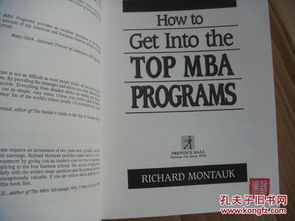How to Get into Uni: A Comprehensive Guide
Embarking on the journey to university is an exciting yet challenging endeavor. Whether you’re a high school graduate or a mature student, the process of getting into uni can seem daunting. However, with the right approach and a well-informed strategy, you can increase your chances of securing a place at your desired institution. In this article, we’ll explore various dimensions of the application process, from academic requirements to personal statements, to help you navigate the path to university.
Understanding the Application Process

Before diving into the specifics, it’s crucial to understand the application process. In most countries, including the United States, United Kingdom, Canada, and Australia, prospective students can apply through centralized systems such as UCAS in the UK, the Common Application in the US, or the Ontario Universities’ Application Centre in Canada.
| Country | Application System |
|---|---|
| United Kingdom | UCAS |
| United States | The Common Application |
| Canada | Ontario Universities’ Application Centre |
| Australia | UCAS |
These systems typically require you to submit personal information, academic transcripts, and a personal statement. Some universities may also request letters of recommendation and standardized test scores, such as the SAT or ACT in the US, or A-levels in the UK.
Academic Requirements

Academic performance is a critical factor in the university admission process. Most universities have minimum entry requirements, which may include specific grades in certain subjects. For example, a student applying to a science program may need to have achieved a certain grade in mathematics and physics.
It’s essential to research the specific requirements of your chosen university and program. You can find this information on the university’s website or by contacting the admissions office. Additionally, consider taking advanced courses or obtaining additional qualifications, such as AP or IB exams, to strengthen your application.
Personal Statement

Your personal statement is your opportunity to showcase your unique qualities, experiences, and motivations. It should be a compelling narrative that highlights your passion for your chosen field and how you can contribute to the university community.
When writing your personal statement, focus on the following aspects:
-
Why you want to study the subject
-
Any relevant experiences or achievements
-
How you can contribute to the university community
-
Any challenges you’ve overcome
Avoid common pitfalls, such as plagiarism, excessive jargon, and overly generic statements. Instead, aim for a clear, concise, and authentic narrative that reflects your personality and aspirations.
Letters of Recommendation
Letters of recommendation can provide valuable insight into your character, abilities, and potential. Typically, you’ll need one or two letters from teachers, counselors, or employers who know you well and can speak to your strengths and achievements.
When requesting a letter of recommendation, provide the recommender with information about your academic and extracurricular achievements, as well as any specific qualities you’d like them to emphasize. Remember to give your recommenders plenty of time to write and submit their letters.
Standardized Tests
Standardized tests, such as the SAT, ACT, IELTS, or TOEFL, are often required for international students or those applying to certain programs. These tests assess your language proficiency and academic abilities, and achieving a high score can significantly strengthen your application.
Prepare for these tests by researching the specific requirements of your chosen university and program, and by utilizing study resources and practice tests. Remember that test scores are just one part of your application, and a well-rounded profile can compensate for lower scores.
Financial Considerations
University education can be expensive, and it’s essential to consider the financial implications of your decision. Research scholarships, grants, and financial aid options available to you, and explore the cost of living in your chosen city or country.
Additionally, consider the long-term benefits of your degree, such as potential earnings and career opportunities. This can
